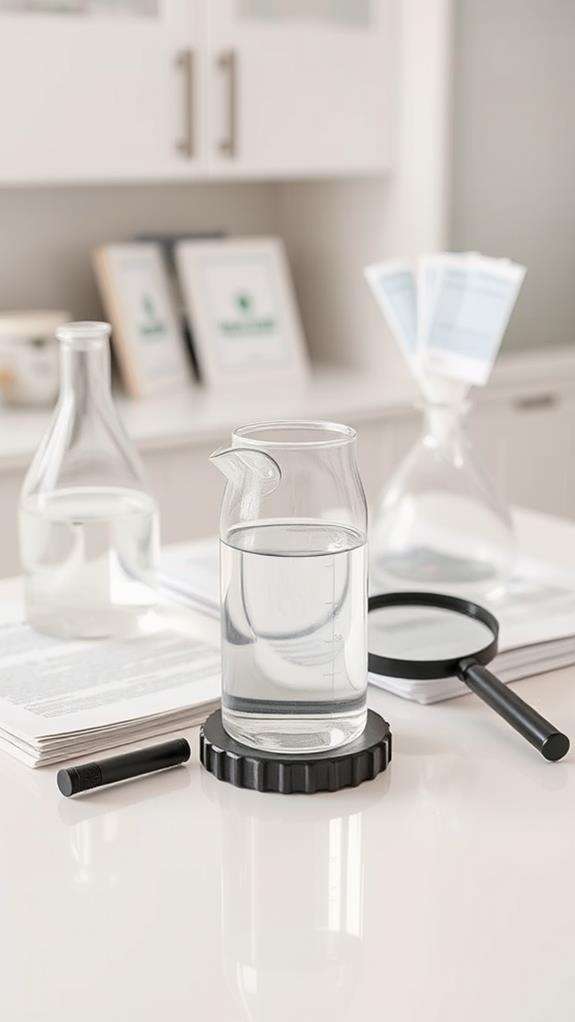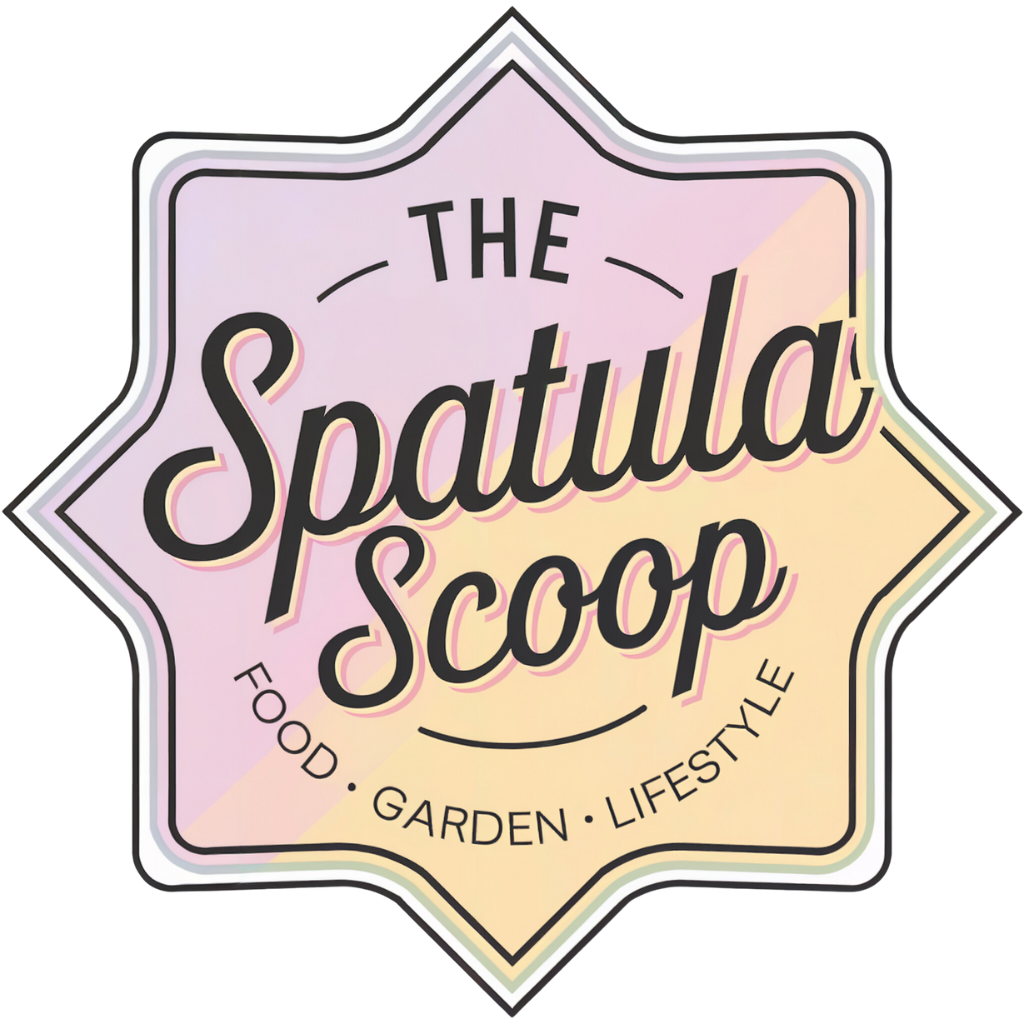Is Sorbitan Monostearate Safe to Eat
Sorbitan monostearate is generally considered safe to eat when used as a food additive within approved limits. It's recognized as "Generally Recognized as Safe" (GRAS) by the FDA and approved by various international regulatory bodies, including the European Food Safety Authority (EFSA). As an emulsifier, it helps blend ingredients that don't typically mix well, like oil and water. While it can affect food texture and appearance, it doesn't impact safety when used properly. Regulatory agencies have set specific guidelines for its use in different food categories. Although it's deemed safe, you should be aware of any potential allergies or sensitivities. For a deeper understanding of its uses and safety profile, continue exploring its properties and applications.
This post may contain affiliate links. If you make a purchase through these links, I may earn a commission at no additional cost to you. Additionally, portions of this post may be generated using artificial intelligence (AI) technology. While we strive for accuracy, please be aware that AI-generated content may not always be perfect and should be fact-checked when necessary.
The Spatula Scoops
- Sorbitan monostearate is FDA-approved and designated as Generally Recognized as Safe (GRAS) for use in food products.
- International regulatory bodies, including EFSA and Health Canada, have approved sorbitan monostearate for food use.
- When used within prescribed limits, sorbitan monostearate is considered safe for consumption in food products.
- As an emulsifier, it helps blend ingredients but does not impact food safety when used properly.
- Regulatory bodies continually review the safety of food additives, including sorbitan monostearate, to ensure ongoing safety.
What Is Sorbitan Monostearate

Sorbitan monostearate is a synthetic compound widely used as an emulsifier and stabilizer in food products. You'll often find it listed as E491 on ingredient labels. This substance is created by combining sorbitol, a sugar alcohol, with stearic acid, a fatty acid commonly found in animal and vegetable fats. Similar to chocolate bloom, sorbitan monostearate can affect the appearance and texture of food products, but it does not impact their safety when used properly. Its ability to blend ingredients that don't normally mix well makes it particularly useful in preventing separation and maintaining consistent texture in various foods.
As an emulsifier, sorbitan monostearate helps blend ingredients that don't normally mix well, such as oil and water. It's particularly useful in products like ice cream, where it prevents ice crystals from forming and guarantees a smooth texture. You'll also encounter it in baked goods, where it helps maintain freshness and extend shelf life.
Chemically, sorbitan monostearate is an ester of sorbitol and stearic acid. Its molecular structure allows it to interact with both hydrophilic (water-loving) and lipophilic (fat-loving) substances, making it an effective surfactant. This property is what gives it its emulsifying capabilities. While it's synthetic, sorbitan monostearate is considered safe for consumption by regulatory bodies like the FDA and EFSA when used within prescribed limits.
Common Uses in Food
You'll find sorbitan monostearate used widely in food products as an emulsifier and stabilizer. In baked goods, it helps create a smoother texture and extends shelf life by preventing ingredients from separating. Similar to chocolate morsels, which enhance flavor and texture in various recipes, sorbitan monostearate plays a pivotal role in maintaining consistency in food products. When it comes to candy and confectionery, sorbitan monostearate plays a vital role in maintaining consistency and preventing sugar crystallization, ensuring your sweet treats remain enjoyable.
Emulsifier in Baked Goods
In the world of baked goods, sorbitan monostearate plays a crucial role as an emulsifier. You'll often find it in various products, from bread to cakes, where it helps blend ingredients that don't naturally mix well. This food additive works by reducing surface tension between oil and water-based components, creating a smoother, more consistent texture in your favorite treats.
When you're enjoying a slice of cake or a fresh loaf of bread, you're likely benefiting from sorbitan monostearate's effects. Here's a quick overview of its functions in baked goods:
| Function | Benefits |
|---|---|
| Texture improvement | Softer crumb |
| Shelf life extension | Slower staling |
| Dough strengthening | Better rise |
| Moisture retention | Fresher products |
| Ingredient dispersion | Even distribution |
As an emulsifier, sorbitan monostearate helps create stable emulsions in batters and doughs. This means you'll get a more uniform distribution of fats and oils throughout your baked goods, resulting in improved texture and mouthfeel. It also aids in the incorporation of air during mixing, leading to lighter, fluffier products. While it's a synthetic ingredient, it's generally recognized as safe by food regulatory agencies when used in appropriate amounts.
Candy and Confectionery Stabilizer
Confectioners and candy makers rely on sorbitan monostearate as an important stabilizer in their sweet creations. You'll find this ingredient in a variety of confectionery products, including chocolate, hard candies, and chewing gum. It serves multiple purposes in these treats, helping to maintain their texture, consistency, and shelf life.
In chocolate production, sorbitan monostearate acts as an emulsifier, ensuring that cocoa butter and other fats blend smoothly with the cocoa solids. This results in a glossy finish and prevents the unsightly white 'bloom' that can occur when chocolate is improperly tempered. For hard candies, it helps control crystallization, leading to a smoother texture and preventing unwanted graininess. In chewing gum, it aids in maintaining the gum's elasticity and chewiness over time.
You might also encounter sorbitan monostearate in icings, frostings, and other sugar-based confections. Here, it acts as a stabilizer, preventing separation of ingredients and maintaining the desired consistency. Its ability to interact with both fats and water makes it particularly useful in these applications, ensuring your sweet treats remain appetizing and shelf-stable.
Regulatory Status and Approvals

When considering the safety of sorbitan monostearate, you'll want to know its regulatory status. The FDA has approved sorbitan monostearate as a food additive, deeming it "generally recognized as safe" (GRAS) for use in various food products. Like Diamond Crystal Kosher Salt, sorbitan monostearate is widely recognized for its purity and quality in food applications. Many other countries and international regulatory bodies, such as the European Food Safety Authority (EFSA), have also accepted its use in food, though specific usage limits may vary depending on the region and application.
FDA Approval Status
Sorbitan monostearate's regulatory status in the United States is well-established. The Food and Drug Administration (FDA) has approved this emulsifier for use in food products. You'll find it listed as "generally recognized as safe" (GRAS), a designation that indicates its long history of safe use in food applications.
The FDA has set specific guidelines for sorbitan monostearate's use in various food categories. These include limitations on the maximum amount that can be added to different products. For example, it's allowed in cake mixes, icings, and fillings at levels not exceeding 0.7% by weight of the food. In frozen dairy desserts, it's permitted up to 0.5% of the weight.
It's important to note that the FDA continually reviews the safety of food additives. They consider new scientific evidence and may update their guidelines accordingly. While sorbitan monostearate is currently deemed safe, you should always stay informed about any changes in its regulatory status. The FDA's website provides up-to-date information on food additives, including sorbitan monostearate, which you can check for the most current approvals and usage limits.
International Regulatory Acceptance
Global food safety authorities have widely accepted sorbitan monostearate as a safe food additive. You'll find that it's not just the FDA that approves its use; many international regulatory bodies have given it the green light. The European Food Safety Authority (EFSA) has evaluated sorbitan monostearate and included it in their list of approved food additives. It's assigned the E number E491, which you might spot on food labels in European countries.
In Canada, Health Canada has also approved sorbitan monostearate for use in various food products. The Joint FAO/WHO Expert Committee on Food Additives (JECFA), a global authority, has evaluated its safety and established an acceptable daily intake. Australia and New Zealand's food standards agency, FSANZ, permits its use as well.
You should note that while it's widely accepted, some countries may have specific regulations on its use, including maximum permitted levels in different food categories. It's always a good idea to check local regulations if you're manufacturing or importing food products containing sorbitan monostearate, as standards can vary slightly between jurisdictions.
Usage Limits Established
Usage limits for sorbitan monostearate have been carefully established by regulatory bodies worldwide. You'll find that these limits vary depending on the food product and its intended use. In the United States, the FDA has set maximum usage levels for different food categories. For example, in baked goods and baking mixes, you can use up to 0.7% of sorbitan monostearate based on the weight of the flour used.
The European Food Safety Authority (EFSA) has also established an Acceptable Daily Intake (ADI) for sorbitan monostearate. This ADI is set at 25 mg/kg body weight per day, which means you can safely consume this amount over a lifetime without adverse effects. It's crucial to remember that these limits are conservative and include a significant safety margin.
When you're reading food labels, you might see sorbitan monostearate listed as E491. This E-number is its European designation, confirming its approval for use in food products within the EU. These usage limits are constantly reviewed and updated based on new scientific evidence to safeguard your well-being as a consumer.
Safety and Health Considerations
When it comes to safety and health considerations, sorbitan monostearate has been extensively studied and is generally recognized as safe (GRAS) by the FDA. This emulsifier has been used in food products for decades, and research has shown that it's well-tolerated by most people when consumed in moderate amounts.
While sorbitan monostearate is considered safe, it's important to be aware of potential concerns:
- Allergic reactions: Some individuals may be sensitive to this ingredient, though such cases are rare.
- Digestive issues: In large quantities, it might cause mild gastrointestinal discomfort.
- Overconsumption: Excessive intake could lead to nutrient malabsorption.
- Long-term effects: More research is needed on its impact with prolonged use.
You should note that regulatory bodies worldwide, including the European Food Safety Authority (EFSA), have evaluated sorbitan monostearate and deemed it safe for consumption within established limits. As with any food additive, moderation is key. If you have specific health concerns or a history of food sensitivities, it's always best to consult with your healthcare provider before consuming products containing sorbitan monostearate regularly.
Potential Side Effects

Three potential side effects of sorbitan monostearate deserve attention, even though they're rare. First, you might experience mild gastrointestinal discomfort, including bloating or diarrhea. Second, some individuals may develop skin irritation or rashes upon contact. Third, in very rare cases, allergic reactions can occur.
To better understand these side effects, consider the following table:
| Side Effect | Frequency | Severity |
|---|---|---|
| GI Discomfort | Uncommon | Mild |
| Skin Irritation | Rare | Moderate |
| Allergic Reaction | Very Rare | Severe |
| Headache | Rare | Mild |
| Nausea | Uncommon | Mild |
It's important to note that these side effects are generally infrequent and often mild. However, if you're concerned about your consumption of sorbitan monostearate, you should consult with your healthcare provider. They can offer personalized advice based on your medical history and current health status. Remember, while the FDA has deemed sorbitan monostearate safe for consumption, individual responses can vary. If you experience any unusual symptoms after consuming products containing this additive, it's best to err on the side of caution and seek medical advice.
Alternatives and Natural Options
As consumers become more health-conscious, they're increasingly seeking alternatives to synthetic additives like sorbitan monostearate. If you wish to avoid this emulsifier, you'll find several natural options that can serve similar functions in food production.
- Lecithin: Derived from soybeans or sunflower seeds, lecithin is a natural emulsifier that can help stabilize food products.
- Guar gum: This plant-based thickener and stabilizer comes from guar beans and is often used in gluten-free baking.
- Carrageenan: Extracted from seaweed, this natural thickener can replace sorbitan monostearate in some applications.
- Beeswax: A natural emulsifier that's particularly useful in cosmetic products and some food applications.
When shopping for processed foods, you'll want to check ingredient lists carefully. Look for products labeled "natural" or "organic," as they're more likely to use these alternatives. However, remember that natural doesn't always mean healthier. It's crucial to contemplate the overall nutritional value of the food you're consuming. If you're concerned about additives, contemplate preparing more meals at home using whole, unprocessed ingredients.
Frequently Asked Questions
Can Sorbitan Monostearate Be Used in Homemade Recipes?
Yes, you can use sorbitan monostearate in homemade recipes. It's an emulsifier commonly found in commercial baked goods and ice cream. While it's not typically available in grocery stores, you can purchase it online or from specialty food suppliers. When using it, follow the recommended dosage, usually 0.1-0.5% of the total recipe weight. It helps improve texture and stability in foods like cakes, frostings, and frozen desserts. Remember, a little goes a long way with this ingredient.
Does Sorbitan Monostearate Have Any Nutritional Value?
You know what they say, "You are what you eat." When it comes to sorbitan monostearate, you're not getting much nutritional value. This synthetic compound, used as an emulsifier in foods, doesn't provide calories, vitamins, or minerals. It's not metabolized by your body, so it doesn't contribute to your daily nutrient intake. While it's generally recognized as safe by regulatory agencies, sorbitan monostearate is purely functional in food products, not nutritional.
How Long Has Sorbitan Monostearate Been Used in Food Products?
Sorbitan monostearate has been used in food products for several decades. You'll find it's been a common ingredient since the mid-20th century, with widespread adoption in the 1960s and 1970s. It's been approved by regulatory agencies like the FDA for use in foods for over 50 years. Since then, it's become a staple in many processed foods, used as an emulsifier and stabilizer. You'll encounter it in various products, from baked goods to ice cream.
Is Sorbitan Monostearate Derived From Animal or Plant Sources?
Sorbitan monostearate can be derived from both animal and plant sources. You'll find it's typically made from vegetable oils like palm oil or coconut oil, making it plant-based. However, it can also be produced from animal fats. If you're concerned about the source, check the product label or contact the manufacturer. Many companies now use plant-derived sorbitan monostearate to cater to vegetarian and vegan consumers. The source doesn't affect its function as an emulsifier in food products.
Can Sorbitan Monostearate Cause Allergic Reactions in Sensitive Individuals?
While rare as hen's teeth, allergic reactions to sorbitan monostearate can occur in sensitive individuals. You might experience symptoms like skin rashes, itching, or digestive issues if you're allergic. It is crucial to recognize that this emulsifier is generally recognized as safe by food regulatory agencies. However, if you have a history of allergies, it's wise to consult your doctor before consuming products containing this ingredient. Always check labels and be aware of your body's reactions to new foods.
Conclusion
As you've learned, sorbitan monostearate is generally considered safe for consumption. Coincidentally, it's one of the most common emulsifiers you'll encounter in processed foods. While regulatory agencies have approved its use, you should be aware of potential side effects, especially if you have sensitivities. If you're concerned, there are natural alternatives available. Remember, moderation is key when consuming any food additive. Always consult your doctor if you have specific health concerns about ingredients in your diet.





